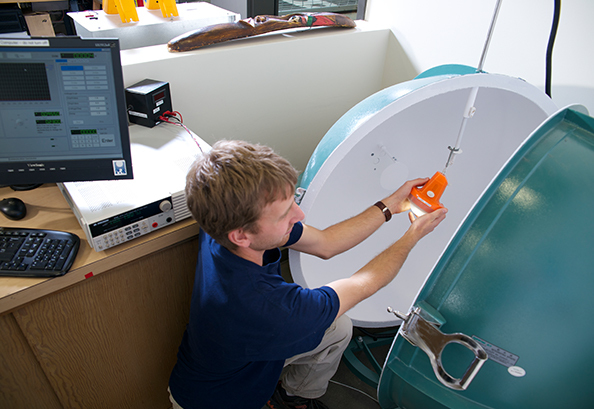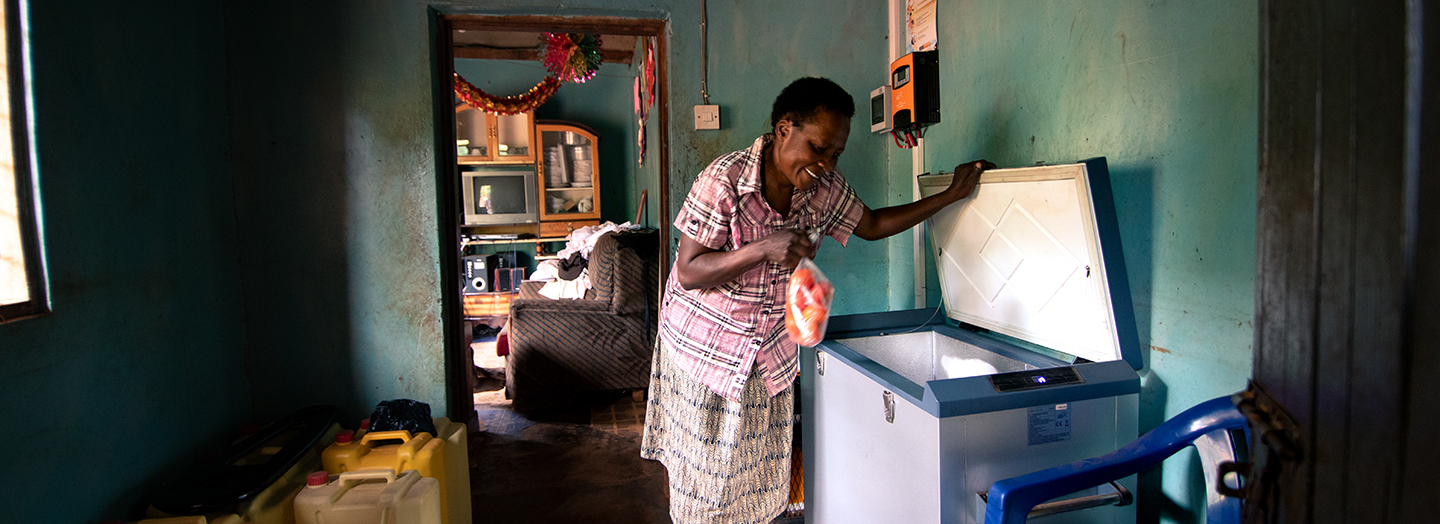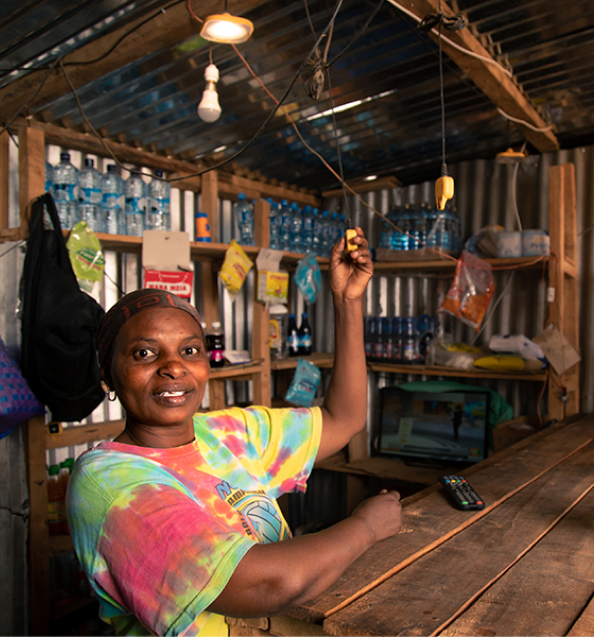Manufacturers
Test their products with VeraSol or align their in-house test methods with ours to accurately assess and benchmark product performance.
VeraSol develops and maintains test methods that advance product quality assessment across the off-grid market to produce essential data.
Test methods are the first component of a quality assurance framework. Test methods define a standard set of processes that evaluate products of a given type. They enable test labs, manufacturers, and others to assess product performance and produce test results that are consistent, comparable, and repeatable. The test methods used by VeraSol are developed using a rigorous process in consultation with industry stakeholders and international standardization bodies to support all market actors and avoid biases.
Learn more about VeraSol’s stakeholder engagement process on test methods.
View hundreds of independently tested and certified off-grid solar solutions.
Test methods are the first component of a quality assurance framework. Test methods define a standard set of processes that evaluate products of a given type. They enable test labs, manufacturers, and others to assess product performance and produce test results that are consistent, comparable, and repeatable. The test methods used by VeraSol are developed using a rigorous process in consultation with industry stakeholders and international standardization bodies to support all market actors and avoid biases.
Learn more about VeraSol’s stakeholder engagement process on test methods.
Test their products with VeraSol or align their in-house test methods with ours to accurately assess and benchmark product performance.
Expand their testing capacity by receiving training on the test methods and technical support from our team of experts.
Utilize VeraSol’s established test methods or work with our team to develop new test methods that help keep sub-standard products out of the market.
VeraSol tests and certifies solar energy kits with solar modules up to a 350-Watt peak. We use the test methods defined in IEC TS 62257-9-5: Laboratory evaluation of stand-alone renewable energy products for rural electrification. They are specifically designed to measure performance, durability, safety, quality of workmanship, lumen maintenance, and more.
All testing is performed by VeraSol’s global network of approved test laboratories according to IEC TS 62257-9-5, but the number of required samples and method for sampling depends on the purpose of the testing.
An optional, abbreviated test method that can offer key feedback to the manufacturer and indicate whether or not the product is likely to meet the quality standards.
The complete test method used to verify comprehensive product quality and performance. Results from QTM testing are used to determine if a product has met the quality standards and thus qualifies for VeraSol certification. QTM results are valid for two years.
The MCM is used during Market Check Testing to ensure products sold in the market meet that measured during program entry. The MCM is also used for renewal testing to extend the certification for another two years.
An optional, alternative certification pathway that is faster than standard QTM testing. Results from AVM testing are used to determine if a product has met the quality standards and thus qualifies for VeraSol certification. The AVM maintains the rigor of certification through a combination of eligibility screening and comprehensive follow-up QTM testing.
The PAYG – MCT method is used to confirm the basic PAYG functionality of solar energy kits sold in the market if concerns arise regarding the function of a product’s PAYG system. The procedure tests features specific to the PAYG system that are only functional in the intended location of use and could not be tested during a typical Market Check Test.
VeraSol maintains the Global LEAP test methods for standalone TVs, fans, refrigerators, and solar water pumps intended for use with off-grid solar energy systems, such as solar home system kits or mini-grids. The Global LEAP test methods leverage pre-existing and widely-accepted international test methods, adapted in close collaboration with off-grid professionals and other market, product, and testing experts. These standardized test methods enable consistent product-to-product comparisons.
The Global LEAP test methods primarily cover:
VeraSol also develops the Rapid Product Assessment framework, which offers a flexible, cost-effective, and timesaving approach to verify the quality of nascent PUE technologies, including egg incubators, milling machines, and agricultural sprayers.
The Global LEAP test methods are used by VeraSol to test and evaluate off-grid appliances. All of the appliances published on the VeraSol Product Database have been tested according to these test methods.
The test methods for solar energy kits can be purchased through the IEC website and the Global LEAP off-grid appliance test methods are available through the VeraSol website. Please contact us if you would like to learn more about the test methods or are interested in developing new test methods for off-grid solar products.
IEC TS 62257-9-5:2018
Test methods, standards, and other key documents for rural electrification are available at a discount for qualified stakeholders.
This document establishes methods to measure the performance, quality, and durability of televisions (TVs) intended for use with off-grid energy systems.
This document establishes methods to measure the performance, quality, and durability of refrigerators intended for use with off-grid energy systems.
This document defines methods to evaluate the quality and performance of off-grid solar water pumps.
This document establishes methods to measure the performance, quality, and safety of electric pressure cookers.
This document defines methods to evaluate the quality, performance, functionality, and user safety of small-scale solar-powered milling equipment.
This document defines methods to evaluate the quality, performance, functionality, and user safety of small-scale solar-powered milling equipment.
Submit your product for testing or certification
View hundreds of independently tested and certified off-grid solutions


